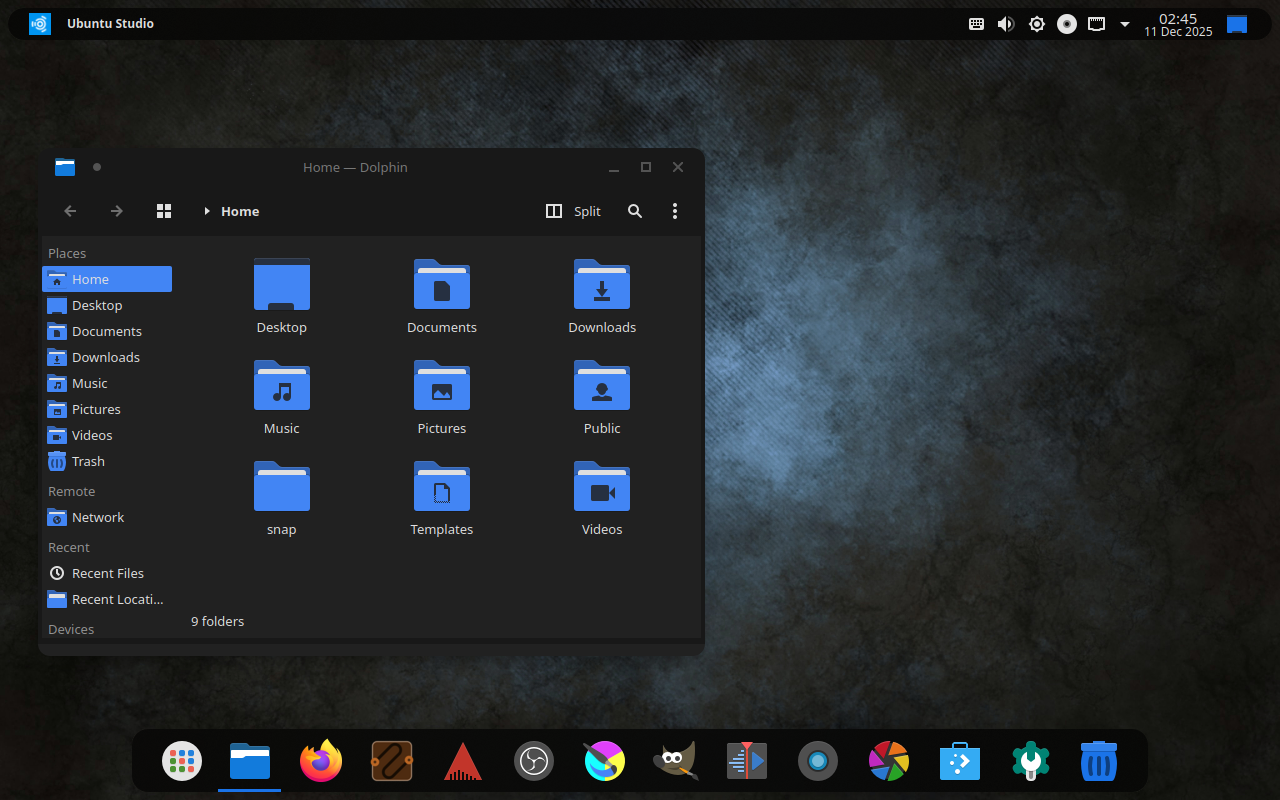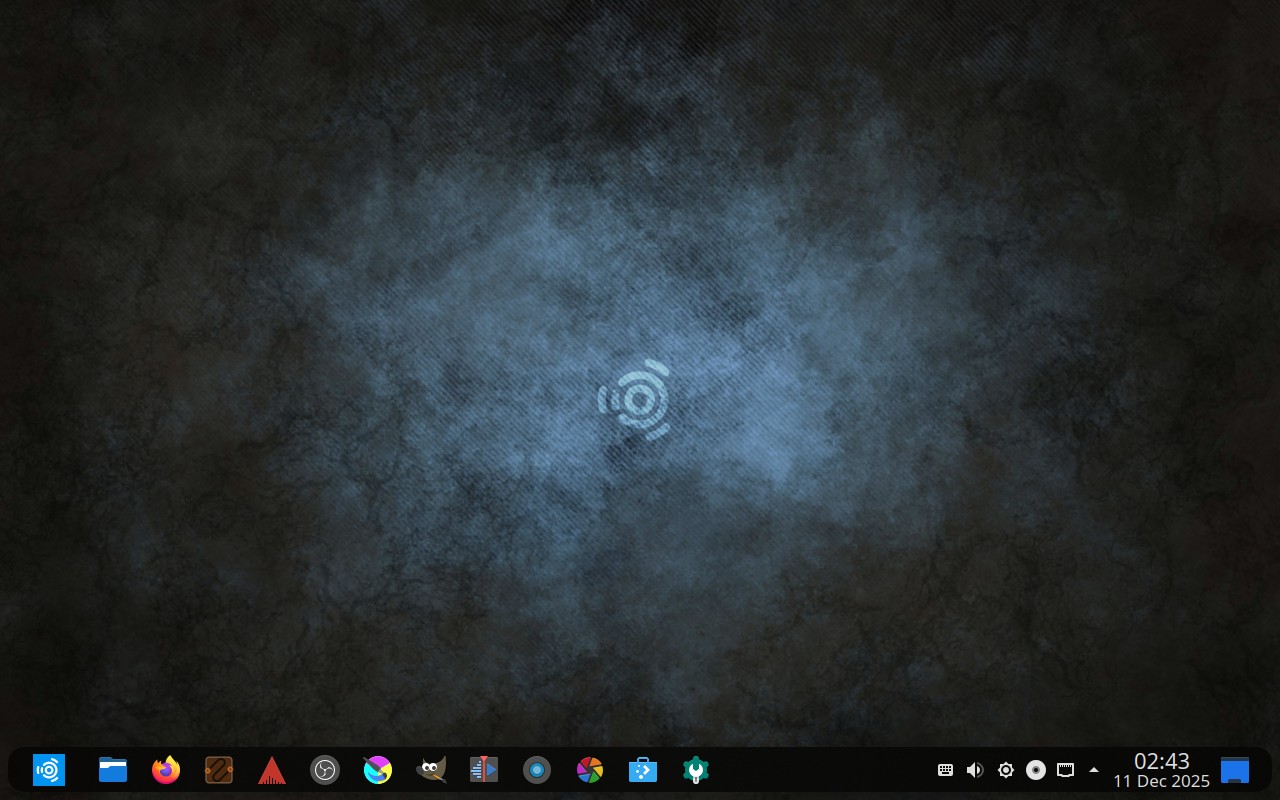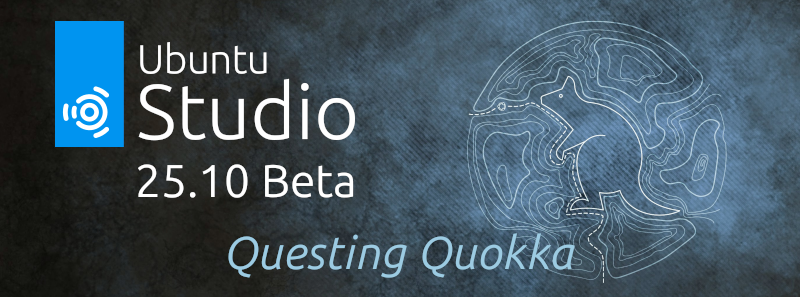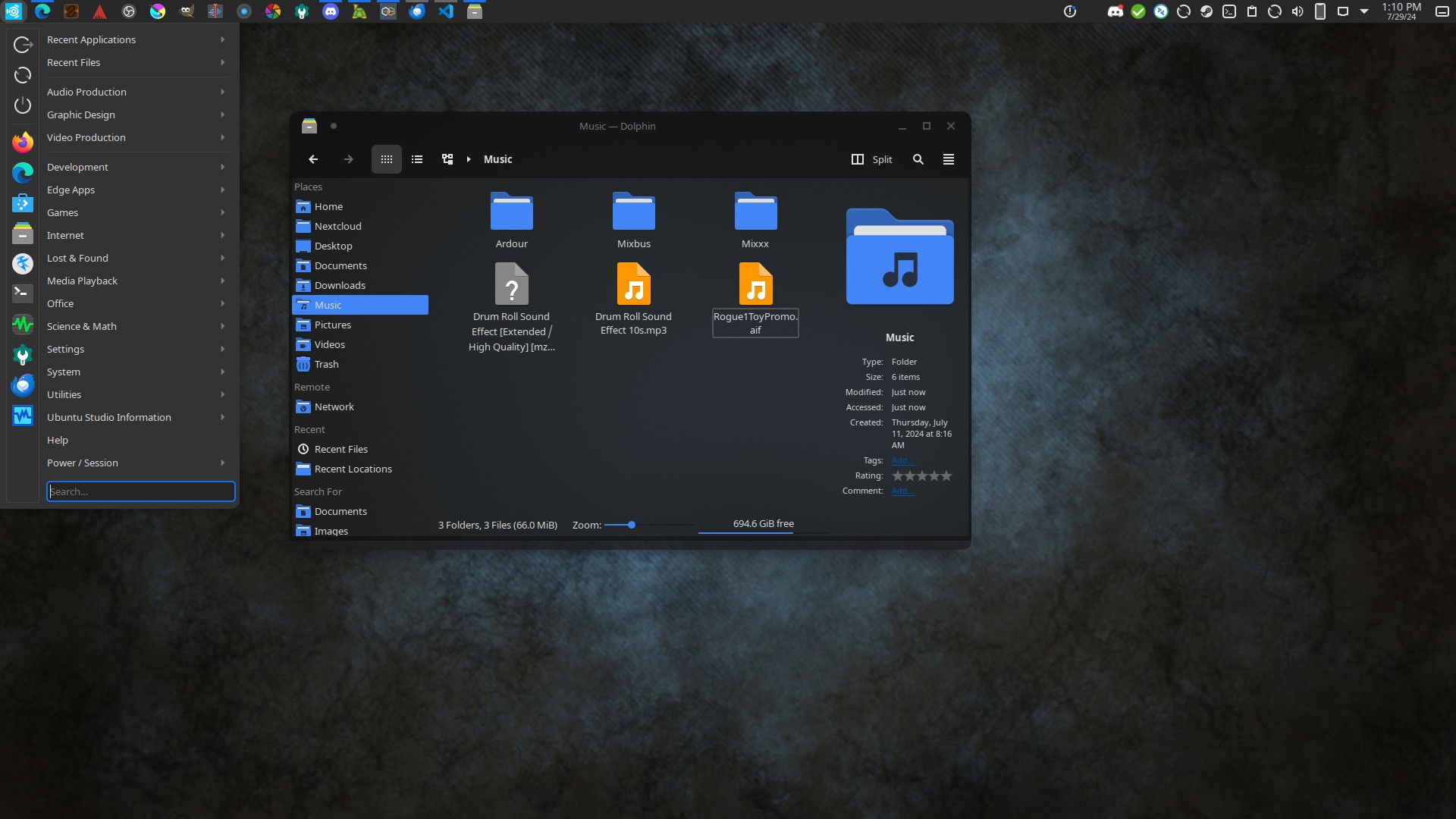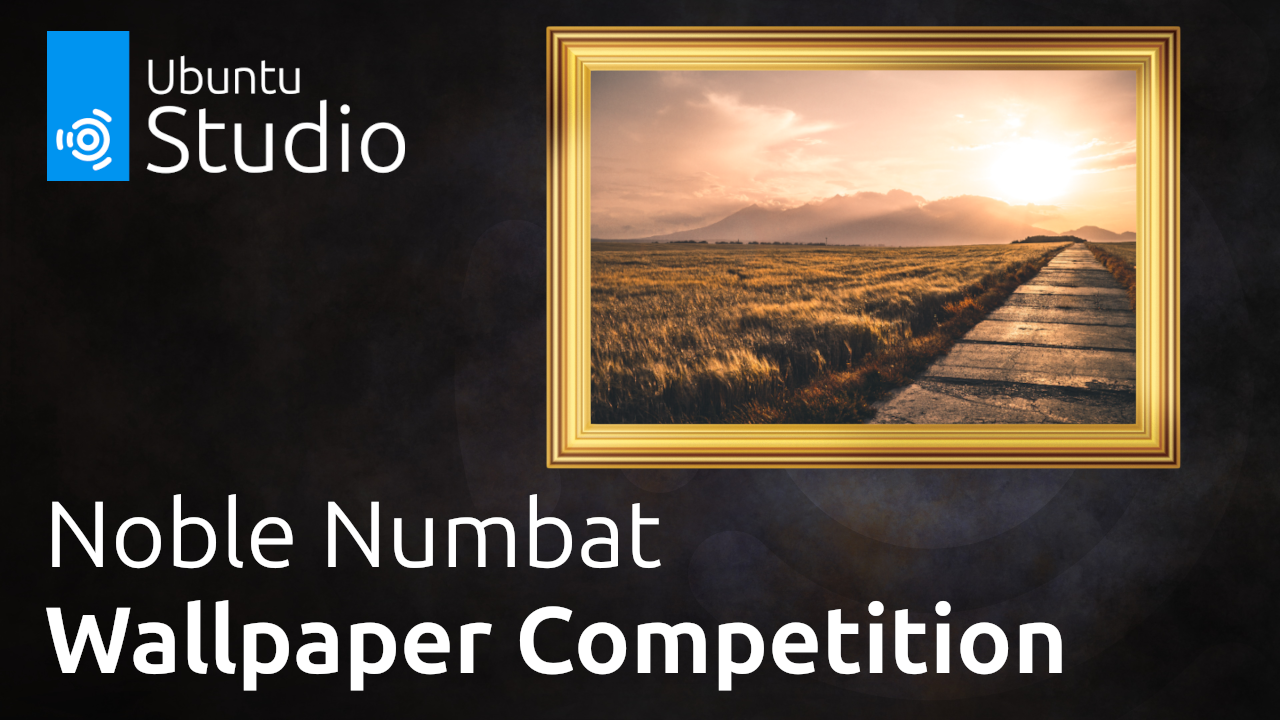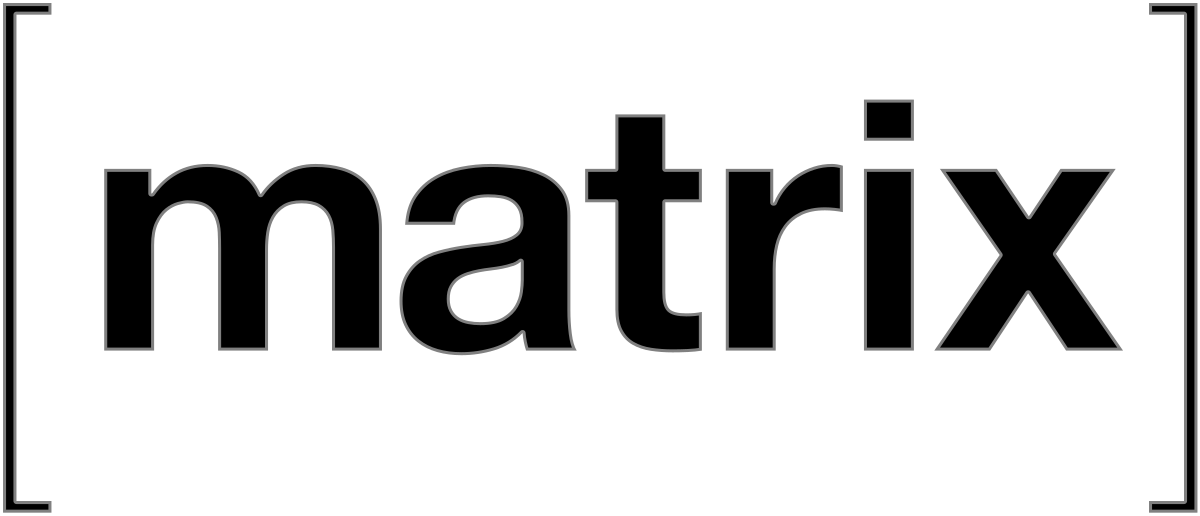The Ubuntu Studio team is pleased to announce the beta release of Ubuntu Studio 25.04, codenamed “Plucky Puffin”.
While this beta is reasonably free of any showstopper installer bugs, you will find some bugs within. This image is, however, mostly representative of what you will find when Ubuntu Studio 25.04 is released on April 17, 2025.
We encourage everyone to try this image and report bugs to improve our final release.
Special Notes
The Ubuntu Studio 25.04 image (ISO) exceeds 4 GB and cannot be downloaded to some file systems such as FAT32 and may not be readable when burned to a DVD. For this reason, we recommend downloading to a compatible file system. When creating a boot medium, we recommend creating a bootable USB stick with the ISO image or burning to a Dual-Layer DVD.
Images can be obtained from this link: https://cdimage.ubuntu.com/ubuntustudio/releases/25.04/beta/
Full updated information, including Upgrade Instructions, are available in the Release Notes.
New Features This Release
This release is more evolutionary rather than revolutionary. While we work hard to bring new features, this one was not one where we had anything major to report. Here are a few highlights:
- Plasma 6.3 is now the default desktop environment, an upgrade from Plasma 6.1.
- PipeWire continues to improve with every release.. Version 1.2.7
- The Default Panel Icons are now back. The default panel now populates depending on which applications are available, so that there are never empty icons if you choose the minimal install, and then install one or more of our featured applications. This refresh to the default is done every reboot, so it’s not a live update. Additionally, it must be refreshed manually from the User side either by selecting the Global Theme or removing the panel and adding “Ubuntu Studio Default Panel”.
- While not included in this Beta, Darktable will be upgraded to 5.0.0 before final release.
Major Package Upgrades
- Ardour version 8.12.0
- Qtractor version 1.5.3
- Audacity version 3.7.3
- digiKam version 8.5.0
- Kdenlive version 24.12.3
- Krita version 5.2.9
- GIMP version 3.0.0
There are many other improvements, too numerous to list here. We encourage you to look around the freely-downloadable ISO image.
Known Issues
- The installer was supposed to be able to keep the screen from locking, but this will still happen after 15 minutes. Please keep the screen active during installation. As a workaround if you know you will be keeping your machine unattended during installation, press Alt-Space to invoke Krunner (this even works from the Install Ubuntu Studio versus the Try Ubuntu Studio live environment) and type “System Settings”. From there, search for “Screen Locking” and deactivate “Lock automatically after…”.
Another possible workaround is to click on “Switch User” and then re-login as “Live User” without a password if this happens.
- You will be prompted, upon first login of any new user, to reboot to apply proper audio configurations for audio production. This is intentional and is a workaround for the installer’s inability to configure the first user as part of the “audio” group or for new users to be added to the audio group automatically.
- The Installer background and slideshow still show the Oracular Oriole mascot. This is work in progress, to be fixed in a daily release sometime between now and final release.
Official Ubuntu Studio release notes can be found at https://discourse.ubuntu.com/t/ubuntu-studio-25-04-release-notes/
Further known issues, mostly pertaining to the desktop environment, can be found at https://wiki.ubuntu.com/PluckyPuffin/ReleaseNotes/Kubuntu
Additionally, the main Ubuntu release notes contain more generic issues: https://discourse.ubuntu.com/t/plucky-puffin-release-notes/
How You Can Help
Please test using the test cases on https://iso.qa.ubuntu.com. All you need is a Launchpad account to get started.
Additionally, we need financial contributions. Our project lead, Erich Eickmeyer, is working long hours on this project and trying to generate a part-time income. Go here to see how you can contribute financially (options are also in the sidebar).
Frequently Asked Questions
Q: Does Ubuntu Studio contain snaps?
A: Yes. Mozilla’s distribution agreement with Canonical changed, and Ubuntu was forced to no longer distribute Firefox in a native .deb package. We have found that, after numerous improvements, Firefox now performs just as well as the native .deb package did.
Thunderbird is also a snap this cycle in order for the maintainers to get security patches delivered faster.
Additionally, Freeshow is an Electron-based application. Electron-based applications cannot be packaged in the Ubuntu repositories in that they cannot be packaged in a traditional Debian source package. While such apps do have a build system to create a .deb binary package, it circumvents the source package build system in Launchpad, which is required when packaging for Ubuntu. However, Electron apps also have a facility for creating snaps, which can be uploaded and included. Therefore, for Freeshow to be included in Ubuntu Studio, it had to be packaged as a snap.
Also, to keep theming consistent, all included themes are snapped in addition to the included .deb versions so that snaps stay consistent with out themes.
We are working with Canonical to make sure that the quality of snaps goes up with each release, so we please ask that you give snaps a chance instead of writing them off completely.
Q: If I install this Beta release, will I have to reinstall when the final release comes out?
A: No. If you keep it updated, your installation will automatically become the final release. However, if Audacity returns to the Ubuntu repositories before final release, then you might end-up with a double-installation of Audacity. Removal instructions of one or the other will be made available in a future post.
Q: Will you make an ISO with {my favorite desktop environment}?
A: To do so would require creating an entirely new flavor of Ubuntu, which would require going through the Official Ubuntu Flavor application process. Since we’re completely volunteer-run, we don’t have the time or resources to do this. Instead, we recommend you download the official flavor for the desktop environment of your choice and use Ubuntu Studio Installer to get Ubuntu Studio – which does *not* convert that flavor to Ubuntu Studio but adds its benefits.
Q: What if I don’t want all these packages installed on my machine?
A: We now include a minimal install option. Install using the minimal install option, then use Ubuntu Studio Installer to install what you need for your very own content creation studio.

